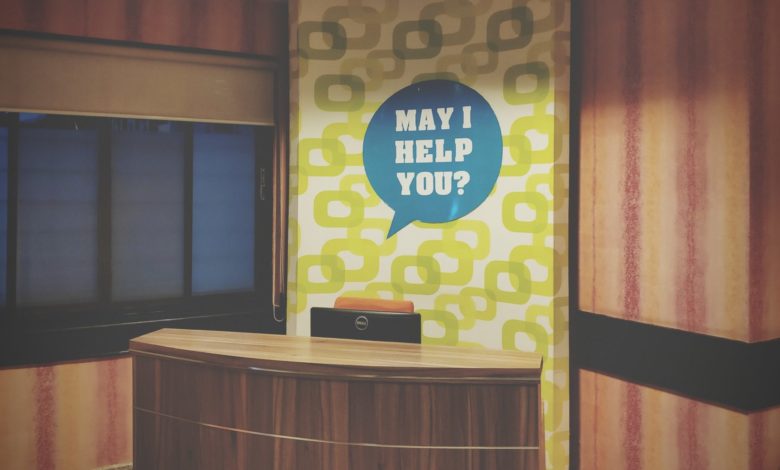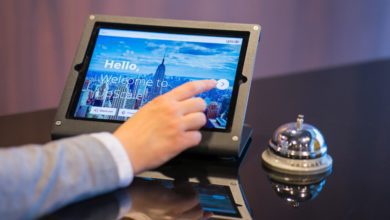Here’s what you miss when you neglect your customer experience
A stellar stay has the potential to grow your customers’ loyalty and personal recommendations as a reliable and welcoming host

Some 70% of buying experiences are based on how the customer feels they are being treated, according to a McKinsey and Company study, and I dare say that rings true for the hotel industry and wider hospitality sector.
Guest experience is what keeps a business ticking; if word-of-mouth has nothing nice to say about your establishment, customers with even a cursory knowledge of the internet will stay well away. On the flip side, a stellar stay has the potential to grow your customers’ loyalty and personal recommendations as a reliable and welcoming host.
Since the pandemic happened and with more discourse surrounding sustainability, housekeeping has been brought to centre stage in a way that it hasn’t been before. Of course, guests have always appreciated a spotlessly clean en-suite; dirty rooms, slow housekeeping response times, lack of staff friendliness, and long check-in waits have all traditionally hurt the guest experiences, but it seems as if the work that goes into these duties have never been more important. Now, guests care to hear about how much water is used in the cleaning of towels, whether rooms use energy-efficient light bulbs, and how the kitchen (if there is one) handles surplus food and waste.
Even if your hotel is doing everything right and hitting all the right notes, guest behaviours, preferences and expectations are constantly changing, so it is hard to appeal to everyone all at once. Some people will not care that you have a memorable experience to deliver through your unique amenities (such as a spa), while others will be disappointed that your personal touches are modest – you just cannot win, which is why you ought to focus on your target client and their idea of an amazing guest experience. Building rapport with your repeat business is a tried and tested way to get the word-of-mouth referrals and positive reviews on social media that you are looking for.
According to an Amadeus study, 50% of travellers polled revealed that they rely on advice from friends and family, while 49% – which is not far off half – admitted to using social media as a way to learn more about their next destination. This shows that peer-to-peer (or word-of-mouth) reviews have become the most influential reason why customers will choose one hotel over another. Besides the favourite social media sites like Instagram and Facebook, TripAdvisor, Yelp and Google facilitate the sharing of reviews publicly.
This instant way for guests to share their thoughts on your business is scary, and hospitality leaders are not lying when they say online reviews are one of – if not the most – influential demand drivers for the hotel industry. Travellers are known to share information, pictures, and details about their personal experiences, both of their holiday and accommodation, and this can unfortunately make or break decisions for others looking to book.
If you weren’t stressed enough already, software company OutboundEngine found that acquiring a new customer can cost five times more than retaining an existing one. That said, by increasing your customer retention by just 5% can increase your profits from 25% to 95%. This is because the success rate of selling to a customer you already have (and who is familiar with your offering) is as high as 60% to 70%, while the success rate of selling to a new customer is as low as 5% to 20%, OutboundEngine found.
As Deloitte has outlined in its Hotel Guest Experience Strategy report, the imperative of the guest experience remains as critical as ever. This report agrees that the act of collecting information about hoteliers’ guests is fundamental to their ability to deliver an exceptional experience, and to their credit, today’s guests are more willing than ever to provide these data points via a variety of means. However, Deloitte pinpointed that the issue hoteliers face now is not just to collect that data but to also “make sense of the data and know how to apply those insights based on situational nuances”.
As part of the report, a survey revealed that only 65% of respondents were satisfied that the hotel “knew” them, which in this case meant remembering their preferences and needs. This is because, nowadays, guests are accustomed to brands that interact with them by understanding, remembering and predicting their preferences and making it easy for them to access them.
To conclude, the hotel industry is at a pivotal juncture where the customer experience holds more sway than ever before. Hotels that prioritise personalised, sustainable, and memorable experiences will draw in loyal customers, as well as benefit from the powerful influence of positive word-of-mouth and online reviews. Investing in exceptional customer service is no longer optional; it’s the cornerstone of enduring hospitality excellence.









